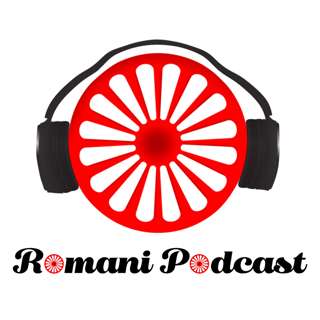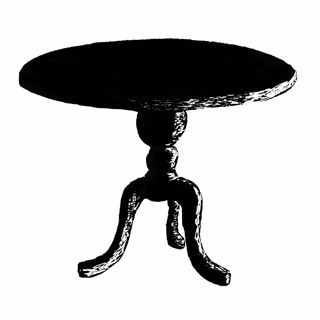
Scotland's Earliest Animal Carvings: An Incredible New Discovery
Prehistoric animal carvings, thought to be up to 5,000 years old, have been discovered in Scotland for the very first time. The images, which include carvings of two red deer, were found by chance on an ancient burial site in Argyll, called Dunchraigaig Cairn. Dr Tertia Barnett, principle investigator for Scotland’s Rock Art Project at Historic Environment Scotland, is on The Ancients to explain why this incredible new discovery is so significant. Find out what the carvings might mean, how they have been conserved for thousands of years, and why these images rewrite the story of prehistoric rock art in north-west Europe. Hosted on Acast. See acast.com/privacy for more information.
17 Kesä 202129min

Berenike and the Red Sea Spice Route
Situated on the western coast of the Red Sea in antiquity were a series of thriving seaports, bringing in trade from as far as way as Sir Lanka. Key mercantile centres, where goods made in Iberia could theoretically have been sold alongside items crafted thousands of miles to the east, in South East Asia. Of these seaports, one of the most remarkable has to be Berenike, a thriving cosmopolitan trading centre, first for the Hellenistic Ptolemaic Kingdom and later for Imperial Rome.To talk through the site’s extraordinary archaeology we were delighted to be joined by Professor Steven Sidebotham from the University of Deleware. Steve has been leading excavations at the site for several years and in this podcast he highlights why Berenike is one of the most exciting archaeological locations anywhere in the World. Hosted on Acast. See acast.com/privacy for more information.
13 Kesä 202148min

Nero: Taking to the Stage
In popular culture, Nero is thought of as the Emperor who played the fiddle as Rome burned to the ground. Whilst this might not be strictly factual, it does hint towards another side of this infamous character. For this episode, Dr Shushma Malik returns to The Ancients to discuss Nero's interest and talents in the arts: in poetry, on stage and playing the kithara. Shushma shares the evidence provided by Tacitus, Suetonius and Cassius Dio to explore how commonplace these hobbies were, how Nero's performances were received and whether they can give us a deeper understanding of Nero's matricidal behaviour. Shushma is a lecturer at the University of Roehampton and the author of, 'The Nero-Antichrist: Founding and Fashioning a Paradigm'. Hosted on Acast. See acast.com/privacy for more information.
10 Kesä 20211h 1min

Iron Age British and Roman Racing Chariots
How truthful are modern depictions of ancient chariots? In this second episode, Mike Loades explores the reality behind the scythed chariot shown in Boudica's Westminster statue. He then draws upon his experimental archaeology to discuss the truth about racing chariots in Ancient Rome. How many horses did they use, and how big were they? Would the riders really have been standing? Mike is a writer, television presenter, director and military historian who has personally tested many replica chariots, including on the streets of London. Hosted on Acast. See acast.com/privacy for more information.
6 Kesä 202154min

Polynesian Mythology
From creation stories to voyager journeys, mythology and oral history are often key to our identities. In this episode Christina Thompson shines a light on some fascinating tales from Polynesian mythology and explains how these tales have been received in more recent history. Christina is the author of Sea People: The Puzzle of Polynesia. Hosted on Acast. See acast.com/privacy for more information.
3 Kesä 202129min

The Golden Age of Chariots
Taxis to the front line or ancient tanks? Through archaeological remains and ancient depictions, we have some idea of what the ancient military vehicles of the ancient world looked like, but how were they ridden and what for? In this first of two conversations, Mike Loades and Tristan discuss the chariots of Egypt, Anatolia, Troy and China. Mike is a writer, television presenter, director and military historian who has personally tested many replica chariots. Hosted on Acast. See acast.com/privacy for more information.
30 Touko 202153min

Alexander the Great's First Persian Victory
If there had been a different outcome to the Battle of Granicus, we might never have heard about Alexander the Great. Taking place in 334 BC, this was his first major victory against the Persian Empire. In this episode, Tristan is joined by Adrian Goldsworthy to discuss Alexander and his tactics right at the beginning of his campaign, before he had built up his formidable reputation. Adrian is a historian and novelist who specialises in Ancient Roman history. Hosted on Acast. See acast.com/privacy for more information.
26 Touko 202152min

Ancient Polynesia: Pioneers of the Pacific
Despite sporadic food sources and the dangers of the deep sea, the remote islands of the Pacific Ocean have been home to Polynesians for more than a millennium. But what was life like for the first people to venture between Hawaii, New Zealand and Easter Island, to name a few? In this episode Christina Thompson explores the new evidence which can tell us more about what the ancient Polynesians ate and how they lived. From the DNA of ancient rats to the mystery of the sweet potato, this is an intriguing listen. Christina is the author of ‘Sea People: The Puzzle of Polynesia’. Hosted on Acast. See acast.com/privacy for more information.
22 Touko 202131min





















